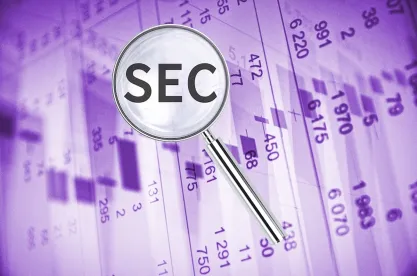In a speech delivered on May 6, 2022 to the Annual Conference on Financial Market Regulation, SEC Chairman Gensler again re-affirmed his support for the SEC's recent proposed mandatory climate disclosures.
Specifically, Chairman Gensler, when discussing the history of the SEC and its mission in regulating the securities markets, stated that a key principle animating the SEC's regulatory agenda was the belief that "investors could make decisions if there was full, fair, and truthful disclosure." Chairman Gensler further remarked that "[m]arkets don't stand still" and that therefore "[o]ur disclosure and transparency rules can't stand still, either," which has led to "the Commission often [] updat[ing] disclosure and transparency regimes." Chairman Gensler then noted that the SEC "has proposed to enhance disclosures," by, among other things, "mandat[ing] climate-related . . . disclosures by public companies."
In effect, Chairman Gensler has characterized the SEC's proposed mandatory climate disclosures as a logical next step in the evolution of the SEC's disclosure regime. (This justification for the proposed climate disclosures is not novel; however, it is significant that Chairman Gensler continues to advance this particular narrative as a rationale for the SEC's policy concerning mandatory climate disclosures.) Notably, describing the mandatory climate disclosures as a natural step in response to changes in the market is a way of potentially de-fusing a common critique of the proposed mandatory climate disclosures--namely, that this proposal is mere fiat by the Biden Administration in service to its environmental policy agenda. Whether politicians, regulators, and the marketplace will find Chairman Gensler's explanation persuasive, however, remains an open question:
The Commission has proposed to enhance disclosures in a number of ways. For example, we’ve proposed to mandate climate-related and cybersecurity-related disclosures by public companies. Further, we also have transparency projects related to short selling, stock buybacks, the stock loan market, and security-based swaps.




 />i
/>i

